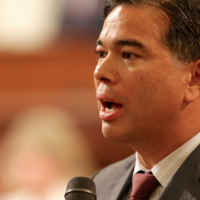Persistent Gaps for Black Californians Would Take Over 248 Years to Close
Almost two decades ago, the inaugural State of Black California report, authored by UCLA Luskin Public Policy Professor Michael Stoll, was the first to provide a comprehensive look at how the material conditions and socioeconomic outcomes for Black Californians fared compared to other racial and ethnic groups. The latest report, published by the Black Policy Project, an initiative of the UCLA Ralph J. Bunche Center for African American Studies, builds upon its predecessor by providing a comparative analysis with a sobering message: Despite improvements in the quality of life for Black communities in California since 2000, racial inequality stubbornly persists and may continue to do so for centuries to come unless more is done. Using an extensive set of census data, researchers found:
- Black Californians’ overall socioeconomic outcomes improved by an average of 21.7% from 2000 to 2020, yet they still have the lowest index score of all racial minority groups and a 30% lower score than white Californians.
- For the first time in decades, the Black Californian population decreased in size, from 2.2 million to 2.1 million, and many moved out of urban centers.
- The biggest improvements in outcomes were bolstered by policy changes, particularly in relation to education and criminal justice.
Stoll, the faculty director of the Black Policy Project who also authored this year’s report, noted that Black Californians closed the overall racial gap in social and economic outcomes with whites by only 4% since 2000. “According to that rate of change, closing the racial gap between Black and white Californians would take over 248 years,” he said. — Kacey Bonner and Barbra Ramos
View the 2024 State of Black California report










Leave a Reply
Want to join the discussion?Feel free to contribute!